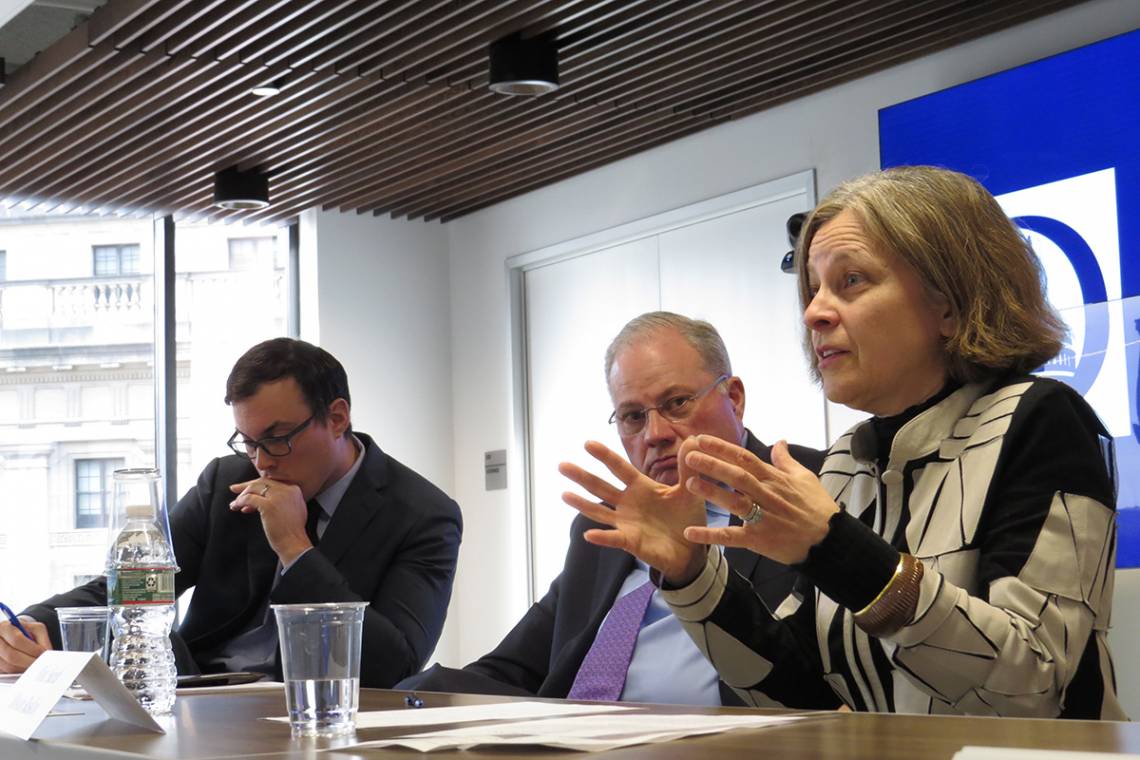Once Used for Natural Disasters, Resilience Theory Informs Financial Regulation Debate

Regulation cannot protect financial systems from all large market downturns, but building resilience into the system may dampen the shock, a series of experts said at the Duke in DC office March 27.
Designed for congressional staff, this half-day conference featured three conversations focused on different perspectives: capital and oversight, the financial consumer, and financial data.
Duke Law lecturing fellow and Executive Director of the Global Financial Markets Center Lee Reiners and Duke Rubenstein Fellow and former Deputy Secretary of the Treasury Sarah Bloom Raskin spoke on the ‘Financial Institution Resilience’ panel.
Common themes appeared in each panel. Congressional staffers were cautioned that policymakers may spend too much time working to solve the last crisis and not trying to prevent the next. And while planners may focus their attention on avoiding market catastrophes, the panelists stressed that financial systems are also vulnerable to basic technological disruption from new financial tech companies that are not subject to usual financial and regulatory oversight.
The speakers also discussed the need to protect consumers through education and economic growth. Economically unstable consumers will not be able to weather recessions regardless how much financial institutions are regulated.